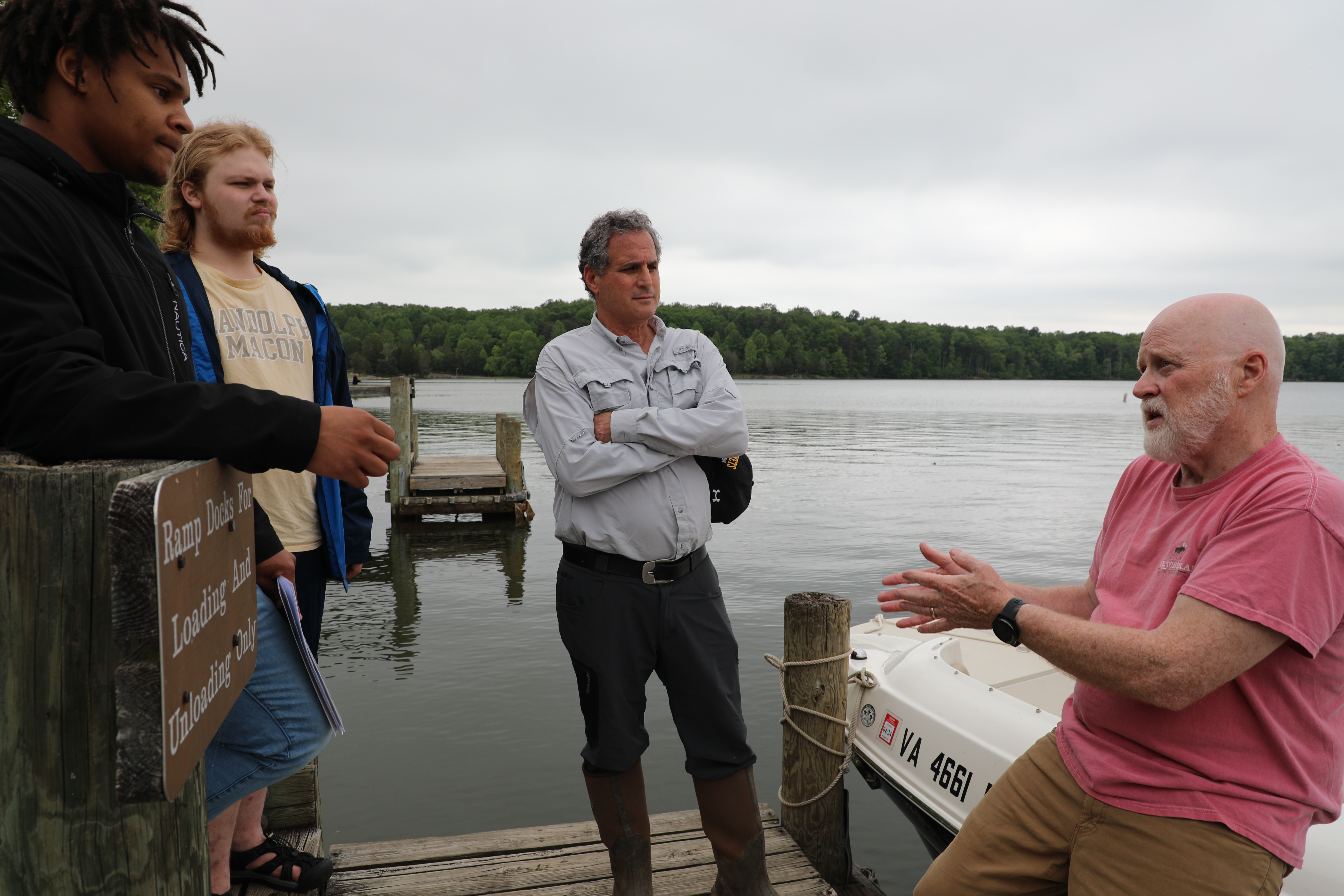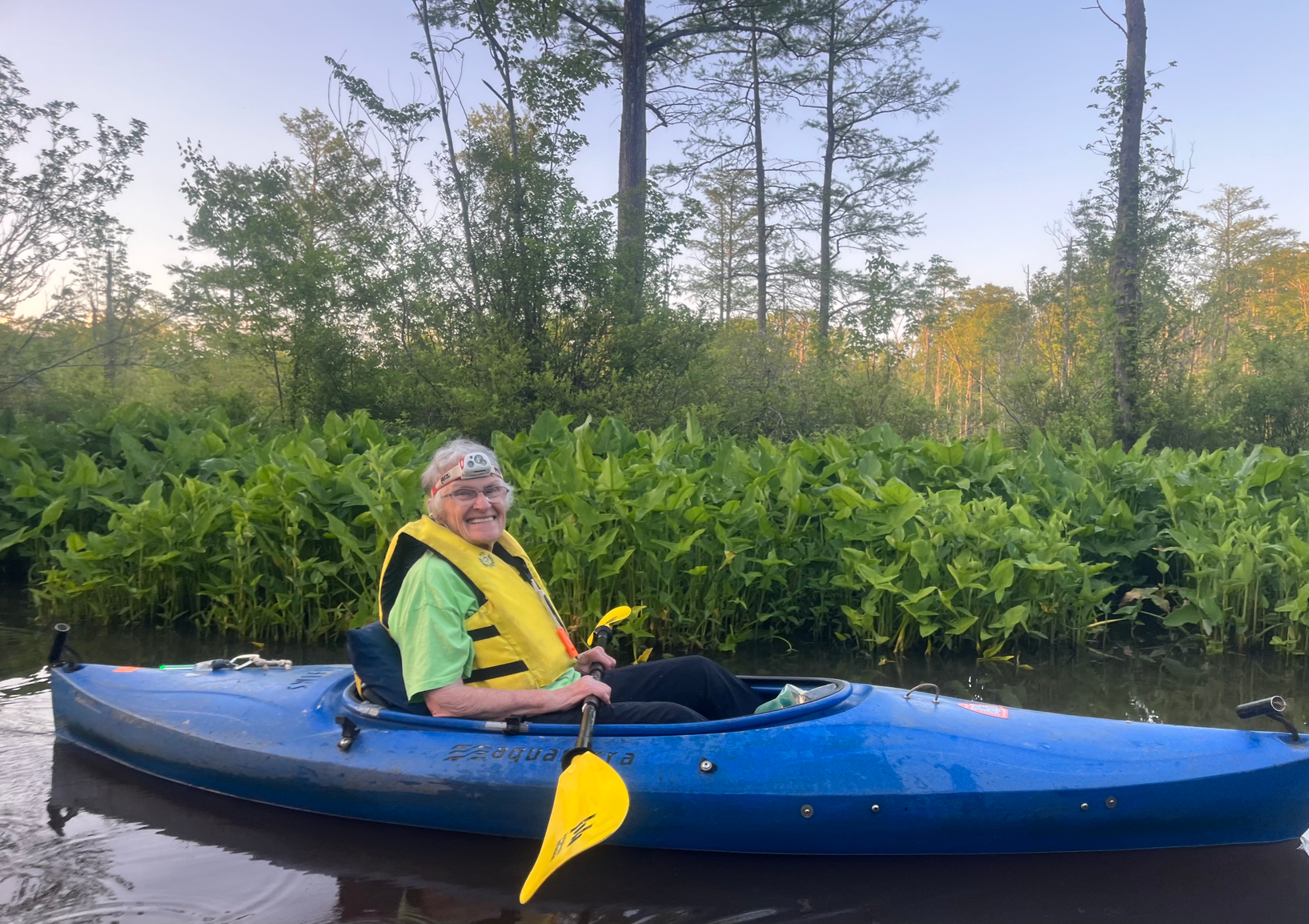York River Roundtable Recognizes Educators for Exceptional Efforts in Environmental Literacy
Collaborative Science Driving Broader Impacts. That was the theme of this year’s York River and Small Coastal Basins Symposium, a forum celebrating research, stewardship, education and management in the York River, Mobjack Bay, and Piankatank River watershed areas.
Kickstarting the day-long series of place-based talks and panels was an award ceremony celebrating watershed educators whose voluntary work has broad impacts that have reverberated throughout the watershed.
“These folks are our ripplemakers,” said Cirse Gonzalez, symposium lead and coordinator of York River and Small Coastal Basin Roundtable, a symposium co-host. “They are but single drops of water in river of many, but they are making waves! Our award winners inspire many to cherish and celebrate our watershed; it’s an honor to recognize their work now by celebrating them.”
The Roundtable recognized two informal educators for their exceptional efforts in environmental literacy for all ages, a primary goal of the organization.
Excellence in Environmental Education Award
Receiving the Excellence in Environmental Education Award was Harry Looney.
Looney was recognized for his voluntary and dedicated efforts to raise awareness and spur action on water quality through the Lake Anna Civic Association (LACA) and its Water Quality and Environmental Preservation Committees.

Through his collaborative leadership, Looney has encouraged community science and necessary conversation on the topic of harmful algal blooms.
“Inaction is no longer an option,” Looney notes. “We all have a role in a shared outcome, and whether that’s a positive one or not, really depends on each member of the community doing their part. I’m just playing my part - sometimes as educator, sometimes as facilitator, sometimes as researcher… everything’s needed.”
Looney has fostered relationships with organizations, schools and universities, garnering both seasoned and next gen allies in the fight for improved water quality while engaging them in experiential education opportunities. Through training and monitoring events, through forums for discussion between regulators and residents alike, and through research conducted with funding he has helped procure, Looney’s commitment to both people and place has made its impression on Lake Anna’s communities.
Lifetime Achievement awards
Receiving the Lifetime Achievement Award was Teta Kain.
As a dynamic communicator and life-long learner with charismatic skill and what’s been referred to as magic by her nominators, Kain, also known as the Empress of the Dragon, has been a force of nature in the Middle Peninsula.

“Teta’s volunteer work defines what it means to be a selfless naturalist who betters the Commonwealth of Virginia,” says Jeff Wright, President of Friends of the Dragon Run where Teta has been a key leader for more than 35 years. “She gets it.”
As a former president of the organization herself, Kain worked with Middle Peninsula localities and committees to protect the Dragon Run. However, her time with the group may be best defined by her famous kayak paddles, during which she’s guided more than one thousand individuals on nature forward tours of the Dragon Run.
Kain’s voluntary and professional pursuits have extended beyond habitat protection and interpretation to include nature photography (her collection of prized photos numbers more than 25,000), leadership of nature-focused societies, and coordination of bird counts, butterfly counts, and moth nights.
Her own words describe well her years in Virginia, “I’ve met literally thousands of people, chased a million birds and butterflies…there aren’t enough hours to do all of the wonderful things to be had here.”
The York River Roundtable and its awards
The York River and Small Coastal Basin (YR&SCB) Roundtable is a forum for information sharing and collaboration among water quality and conservation-minded stakeholders within the York River, Mobjack Bay and Piankatank River watershed areas.
Award winners were nominated by Roundtable members and the broader watershed community; the Roundtable’s Executive Board made final selections. Each awardee was presented with a plaque during the Symposium in their honor.
“Collaboration takes community - and when approached in a spirit of mutual learning and growing,can impact that community for the better too,” says Gonzalez. “These two awardees are living examples of both collaboration and community at their best.”
At 3,254 square miles, or nearly 8% of the Commonwealth’s total land area, the combined York River watershed and its adjacent small coastal basins are among the smallest of Virginia’s Chesapeake Bay watersheds, though no less grand. Located within Virginia’s Coastal Plain and Piedmont physiographic provinces, the York River, Mobjack Bay and Piankatank River watershed areas include all, or portions of, 14 counties and one independent city, encompassing approximately 6,700 miles of rivers/streams, 11,330 lake acres, and 27,074 acres of tidal marsh. York River headwaters flow 220 miles from their origins in Orange County to their mouth at the Chesapeake Bay, traversing land characterized as 75% natural.
Chesapeake Bay National Estuarine Research Reserve in Virginia (CBNERR-VA), administered by the Virginia Institute of Marine Science, reinvigorated the York River and Small Coastal Basin Roundtable in support of Virginia’s effort to protect water quality and conserve coastal resources for the betterment of its communities. Designated in 1991, CBNERR-VA is one of 30 protected areas in the National Estuarine Research Reserve System (NERRS) established to promote informed management of the nation's estuaries and coastal habitats. CBNERR-VA is co-managed by the National Oceanic and Atmospheric Administration (NOAA) and the Commonwealth of Virginia.
